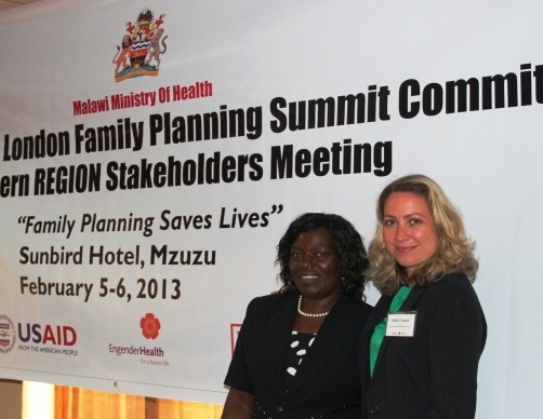Over the past decade, Malawi’s family planning (FP) program has made remarkable strides in expanding access to FP to help women and couples better meet their desired family size. As a direct result of advocacy efforts and renewed government commitment to FP, a broader mix of contraceptive options are becoming more widely and equitably available, including long-acting and permanent methods (LA/PMs) such as implants and female sterilization. However, despite impressive gains [1], high unmet need and barriers to FP information and services persist. To learn more, EngenderHealth’s Holly Connor sat down with Dorothy Nyasulu, Assistant Representative for UNFPA/Malawi and a leading champion on human rights and gender equality for over 20 years, to discuss the intersection of FP, contraceptive choice, and human rights in her home country.
[1] The modern contraceptive prevalence rate (CPR) increased from 22.4 in 2004 to 32.6 by 2010 (Malawi Demographic and Health Surveys)

Dorothy Nyasulu, Assistant Representative of UNFPA/Malawi and Holly Connor, Senior Program Associate, EngenderHealth/The RESPOND Project at a regional family planning stakeholders meeting in Mzuzu, Malawi in February 2013.


